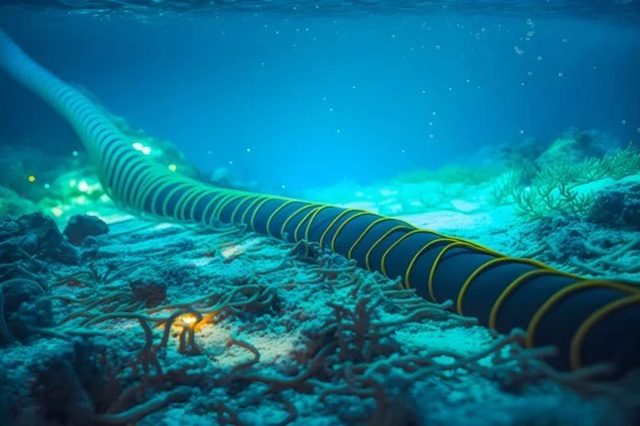The breakage of undersea energy and communications cables in recent months was most likely caused by accidents rather than targeted sabotage by Russia, intelligence agencies in the US and Europe have found, The Washington Post reported, citing sources.
According to high-ranking officials of the three states that are investigating the series of incidents, this view of what happened is gradually becoming a consensus among US and EU security services.
Neither US investigators nor representatives of the six European countries have found indications that the commercial vessels suspected of dragging anchors across the seabed (which led to the severing of cables) acted purposefully or on instructions from Moscow. Instead, the evidence gathered to this day suggests that the incidents were caused by inexperienced crews working aboard poorly maintained vessels. Unambiguous indications have been gathered that each of the incidents was accidental.
Finnish intelligence agrees with the conclusions of US colleagues that the latest incident was probably accidental, but is not ready to rule out Russian interference, the sources said. A spokeswoman for Finland’s National Bureau of Investigation, which is looking into the incident, said the investigation “is still open and it is too early to draw definitive conclusions about the causes or combinations that caused the damage.”
At issue are three incidents that occurred in the past year: in October 2023, November and December 2024. Vessels travelling to or from Russian ports were suspected of cutting underwater lines that carry electricity or internet traffic between Nordic countries.
The Estonian foreign minister said he could not believe such frequent accidental damage and linked the incident to Russia’s “shadow fleet.” The EU has already promised new sanctions against Russia after the latest incident in the Baltic.
The incidents have led to an increased NATO presence in the Baltic Sea as part of Operation Baltic Sentry, which will last about 90 days from early January. Alliance ships have begun patrolling the Baltic Sea. It was decided to increase the number of marine drones for the same purpose.
The Russian authorities deny all suspicions and accusations against them regarding alleged sabotage in EU countries.
The Finnish border service detained the oil tanker Eagle S, which left St. Petersburg, in the Baltic Sea on December 26. The vessel was believed to be involved in damage to the Estlink 2 submarine electricity cable linking Finland with Estonia.
